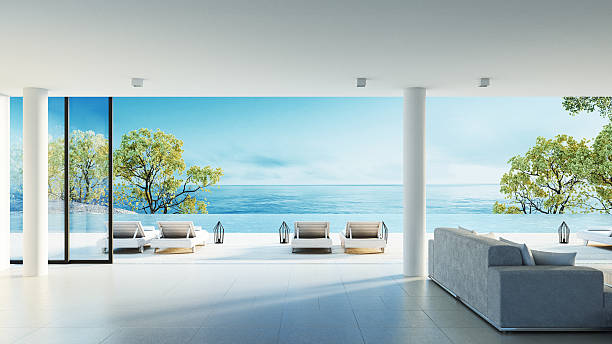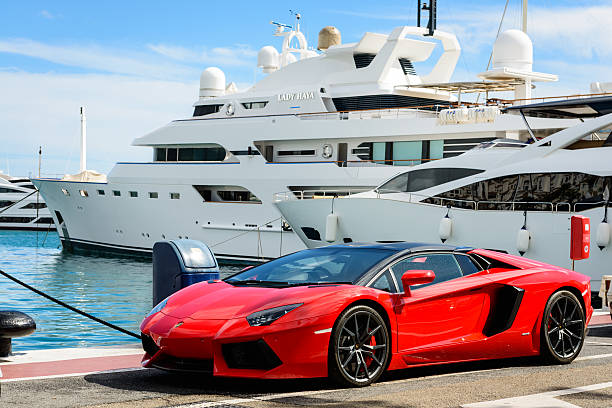Exploring the Essence of Luxury: A Comprehensive Understanding
Luxury, a concept often associated with opulence and grandeur, transcends mere materialism. Its meaning delves into the realms of emotional fulfillment, cultural significance, and personal satisfaction. Understanding luxury requires a nuanced exploration beyond surface-level definitions to grasp its true essence and impact on individuals and society.
The Historical Context of Luxury
To appreciate luxury fully, one must consider its historical evolution. In ancient civilizations, luxury was synonymous with power and status. In ancient Egypt, for instance, luxury items such as intricately designed jewelry and opulent clothing were markers of social hierarchy. The same can be said for Rome and Greece, where luxurious feasts and lavish public spectacles served as symbols of affluence and cultural sophistication.
The Renaissance period saw a shift in the perception of luxury, with art and architecture becoming primary indicators of wealth and prestige. The lavish palaces of European royalty and the works of renowned artists reflected the era's focus on aesthetic excellence and personal grandeur. During the Industrial Revolution, luxury became more accessible, yet it continued to be associated with exclusivity and high social status.
Defining Luxury in Modern Times
In contemporary society, luxury has evolved to encompass more than just material wealth. It now includes experiences, services, and lifestyle choices that reflect one's personal values and aspirations. Modern luxury is not solely about possessing expensive items but about the quality of life and the unique experiences that define one's existence.
Luxury today often involves exclusivity and personalization. High-end brands and services cater to individuals seeking tailored experiences that resonate with their personal tastes and preferences. This shift reflects a broader understanding of luxury as a reflection of individuality and a means to achieve a sense of fulfillment and satisfaction.
The Psychological Dimensions of Luxury
Luxury's significance extends into psychological realms. The pursuit of luxury often stems from a desire for self-expression and identity. High-quality products and experiences provide a sense of achievement and validation, contributing to one's self-esteem and social identity. Luxury items are frequently viewed as rewards for personal success and milestones, reinforcing their role as symbols of accomplishment.
Moreover, luxury can offer a sense of escape and indulgence. The enjoyment derived from luxury experiences often involves a temporary departure from the ordinary or mundane aspects of life. This escape is not merely about physical comfort but also about creating moments of joy and pleasure that enhance overall well-being.
Cultural and Social Perspectives on Luxury
Cultural and social factors play a significant role in shaping perceptions of luxury. Different cultures have unique interpretations of what constitutes luxury, influenced by historical traditions, social norms, and economic conditions. For instance, in some cultures, luxury may be closely linked to traditional craftsmanship and artisanal skills, while in others, it may be associated with modern technological advancements and innovative design.
Social dynamics also influence the perception of luxury. In many societies, luxury is a marker of social status and success, often leading to its pursuit as a means of social mobility or prestige. However, there is also a growing trend towards mindful luxury, where individuals seek to align their consumption with ethical and sustainable practices, reflecting a shift towards more conscientious living.
The Impact of Luxury on Lifestyle
Luxury significantly impacts lifestyle choices, shaping how individuals approach various aspects of their lives. It often influences one's decisions regarding travel, dining, fashion, and home environment. The quest for luxury experiences drives individuals to seek out unique destinations, exclusive events, and bespoke services that cater to their desires for excellence and distinction.
In the realm of fashion, luxury brands have become synonymous with high-quality materials, exceptional craftsmanship, and timeless design. The choice of luxury fashion often reflects personal style and an appreciation for artistic expression. Similarly, luxury real estate and interior design are expressions of one's taste and a desire for a comfortable, elegant living environment.
Sustainable and Ethical Luxury
The contemporary landscape of luxury is increasingly characterized by a focus on sustainability and ethical practices. Consumers are becoming more aware of the environmental and social impact of their luxury purchases. As a result, there is a growing demand for products and services that adhere to ethical standards and contribute positively to society.
Sustainable luxury emphasizes the importance of reducing environmental footprints, supporting fair labor practices, and promoting responsible sourcing. High-end brands are responding to these demands by adopting eco-friendly materials, implementing transparent supply chains, and investing in social responsibility initiatives. This shift represents a merging of traditional luxury with modern values of environmental stewardship and social equity.
The Future of Luxury
As society continues to evolve, so too will the concept of luxury. The future of luxury is likely to be shaped by technological advancements, changing cultural norms, and evolving consumer expectations. Innovations in technology, such as virtual reality and artificial intelligence, may redefine how luxury experiences are created and delivered.
Additionally, the emphasis on personalization and customization will likely grow, allowing individuals to curate their own luxury experiences and products. The integration of luxury with broader social and environmental concerns will also play a crucial role in shaping the future of the industry, reflecting a more holistic approach to what constitutes true luxury.
Conclusion
In summary, luxury is a multifaceted concept that extends far beyond material wealth. It encompasses historical, psychological, cultural, and social dimensions that contribute to its complex meaning. Modern luxury is characterized by a blend of exclusivity, personalization, and mindful practices, reflecting broader shifts in societal values and consumer preferences. As we look to the future, luxury will continue to evolve, driven by innovation, sustainability, and a deeper understanding of personal and collective aspirations.
Luxury, a concept often associated with opulence and grandeur, transcends mere materialism. Its meaning delves into the realms of emotional fulfillment, cultural significance, and personal satisfaction. Understanding luxury requires a nuanced exploration beyond surface-level definitions to grasp its true essence and impact on individuals and society.
The Historical Context of Luxury
To appreciate luxury fully, one must consider its historical evolution. In ancient civilizations, luxury was synonymous with power and status. In ancient Egypt, for instance, luxury items such as intricately designed jewelry and opulent clothing were markers of social hierarchy. The same can be said for Rome and Greece, where luxurious feasts and lavish public spectacles served as symbols of affluence and cultural sophistication.
The Renaissance period saw a shift in the perception of luxury, with art and architecture becoming primary indicators of wealth and prestige. The lavish palaces of European royalty and the works of renowned artists reflected the era's focus on aesthetic excellence and personal grandeur. During the Industrial Revolution, luxury became more accessible, yet it continued to be associated with exclusivity and high social status.
Defining Luxury in Modern Times
In contemporary society, luxury has evolved to encompass more than just material wealth. It now includes experiences, services, and lifestyle choices that reflect one's personal values and aspirations. Modern luxury is not solely about possessing expensive items but about the quality of life and the unique experiences that define one's existence.
Luxury today often involves exclusivity and personalization. High-end brands and services cater to individuals seeking tailored experiences that resonate with their personal tastes and preferences. This shift reflects a broader understanding of luxury as a reflection of individuality and a means to achieve a sense of fulfillment and satisfaction.
The Psychological Dimensions of Luxury
Luxury's significance extends into psychological realms. The pursuit of luxury often stems from a desire for self-expression and identity. High-quality products and experiences provide a sense of achievement and validation, contributing to one's self-esteem and social identity. Luxury items are frequently viewed as rewards for personal success and milestones, reinforcing their role as symbols of accomplishment.
Moreover, luxury can offer a sense of escape and indulgence. The enjoyment derived from luxury experiences often involves a temporary departure from the ordinary or mundane aspects of life. This escape is not merely about physical comfort but also about creating moments of joy and pleasure that enhance overall well-being.
Cultural and Social Perspectives on Luxury
Cultural and social factors play a significant role in shaping perceptions of luxury. Different cultures have unique interpretations of what constitutes luxury, influenced by historical traditions, social norms, and economic conditions. For instance, in some cultures, luxury may be closely linked to traditional craftsmanship and artisanal skills, while in others, it may be associated with modern technological advancements and innovative design.
Social dynamics also influence the perception of luxury. In many societies, luxury is a marker of social status and success, often leading to its pursuit as a means of social mobility or prestige. However, there is also a growing trend towards mindful luxury, where individuals seek to align their consumption with ethical and sustainable practices, reflecting a shift towards more conscientious living.
The Impact of Luxury on Lifestyle
Luxury significantly impacts lifestyle choices, shaping how individuals approach various aspects of their lives. It often influences one's decisions regarding travel, dining, fashion, and home environment. The quest for luxury experiences drives individuals to seek out unique destinations, exclusive events, and bespoke services that cater to their desires for excellence and distinction.
In the realm of fashion, luxury brands have become synonymous with high-quality materials, exceptional craftsmanship, and timeless design. The choice of luxury fashion often reflects personal style and an appreciation for artistic expression. Similarly, luxury real estate and interior design are expressions of one's taste and a desire for a comfortable, elegant living environment.
Sustainable and Ethical Luxury
The contemporary landscape of luxury is increasingly characterized by a focus on sustainability and ethical practices. Consumers are becoming more aware of the environmental and social impact of their luxury purchases. As a result, there is a growing demand for products and services that adhere to ethical standards and contribute positively to society.
Sustainable luxury emphasizes the importance of reducing environmental footprints, supporting fair labor practices, and promoting responsible sourcing. High-end brands are responding to these demands by adopting eco-friendly materials, implementing transparent supply chains, and investing in social responsibility initiatives. This shift represents a merging of traditional luxury with modern values of environmental stewardship and social equity.
The Future of Luxury
As society continues to evolve, so too will the concept of luxury. The future of luxury is likely to be shaped by technological advancements, changing cultural norms, and evolving consumer expectations. Innovations in technology, such as virtual reality and artificial intelligence, may redefine how luxury experiences are created and delivered.
Additionally, the emphasis on personalization and customization will likely grow, allowing individuals to curate their own luxury experiences and products. The integration of luxury with broader social and environmental concerns will also play a crucial role in shaping the future of the industry, reflecting a more holistic approach to what constitutes true luxury.
Conclusion
In summary, luxury is a multifaceted concept that extends far beyond material wealth. It encompasses historical, psychological, cultural, and social dimensions that contribute to its complex meaning. Modern luxury is characterized by a blend of exclusivity, personalization, and mindful practices, reflecting broader shifts in societal values and consumer preferences. As we look to the future, luxury will continue to evolve, driven by innovation, sustainability, and a deeper understanding of personal and collective aspirations.
.jpg)

.jpg)

